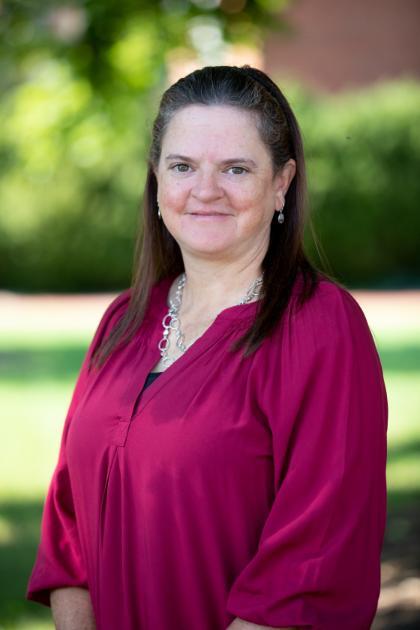
Dr. Shannon Salley
Dr. Shannon Salley
Fosters Supportive Speech-Language Pathology Online Pathway at Longwood
As assistant professor in Longwood’s Communication Sciences and Disorders, M.S. program and coordinator of the Speech-Language Pathology Online program (SLP Online), Dr. Shannon Salley knows that personal relationships and individualized support make a difference. She loves that her job allows her to mentor students as they build clinical skills. 
“Longwood's program allows me to not only influence future speech-language pathologists, but also to keep some aspects of the clinical part of the job that I love so much,” Salley said. “It is kind of the best of both worlds.”
Salley knows firsthand the demand for strong clinicians in the Commonwealth of Virginia. In 2021, she presented research alongside her colleagues on “The Need for SLPAs in Virginia” at the Speech-Language-Hearing Association of Virginia (SHAV) Conference.
Longwood’s SLP Online pathway seeks to fill this need, offering courses that could lead to direct employment opportunities or offer a pathway into graduate school. Salley explained that SLP Online at Longwood stands out for being more affordable, flexible and rigorous than similar programs. To ensure that the online curriculum’s rigor matches the expectations of Longwood’s campus courses, instructors review courses constantly.
“As far as changes go, the program has only grown,” Salley said. “We have added courses as we have seen the need. I think the program just keeps getting stronger each year.”
Many who complete SLP Online apply for Longwood’s Communication Sciences and Disorders program, which allows students to begin working with clients starting in their first week of graduate school, offering both medical and educational placements.
“They get opportunities to work with adults and children in our clinic and get 100% supervision with performance-based feedback to help hone their clinical planning, writing and intervention,” Salley said. “They are able to bounce ideas off of faculty and peers.”
Salley began teaching at Longwood in 2009. A clinician at heart, she never envisioned herself in the role of associate professor, but she explained that working with students has been rewarding.
“I love seeing those ‘light bulb’ moments when they finally get the concepts,” she said. “I love seeing them grow from this nervous graduate clinician who is unsure to this very confident and skilled clinician.”
Her secret, she says, is forming connections with students that ensure their success.
“Our students talk about the great friendships they make during the program and that they feel comfortable asking questions and interacting with faculty,” Salley said. “Working with the students energizes you. They are so excited to conquer the world, and that excitement is contagious.”
